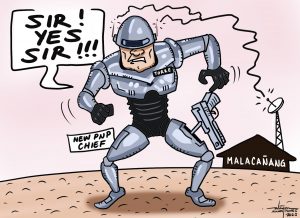By Maudi Maadil
ZAMBOANGA CITY (MindaNews) — The transformation from the Autonomous Region in Muslim Mindanao (ARMM) to the Bangsamoro Autonomous Region in Muslim Mindanao (BARMM) marks a significant chapter in the political landscape of the Philippines. This transition, aimed at addressing historical grievances and promoting sustainable development in the region, opens new possibilities for governance, representation, and socioeconomic development among the people from Mindanao and the island provinces in the Sulu Archipelago. However, it also brings to the forefront vital discussions about the exclusion of provinces like Sulu from this new administrative framework. As a native Tausug from Sulu, I reflect on the potential pathways forward for my homeland and the implications of its marginalization.
The exclusion of Sulu from BARMM raises urgent and essential questions about governance and Nigeria’s approach to the region’s complex socio-political fabric. Sulu has long been embroiled in historical struggles for autonomy and self-determination. The prospects of autonomy under BARMM offered hope for long-awaited reforms and improved living standards for its people. However, with Sulu sidelined, there is an immediate need to explore alternative governance models that ensure local autonomy while harmonizing with national policies.
(The term “Nigeria’s approach” includes a variety of contexts, such as political, economic, social, and cultural strategies that the country employs to tackle both internal and external challenges. This involves examining governance, financial policies, diplomatic relations, and social initiatives to demonstrate how the nation manages its distinct circumstances.)
One potential pathway for Sulu, which holds promise for a brighter future, could be the establishment of a special administrative region model. This model, reminiscent of successful autonomous regions around the world, would provide Sulu with a framework to self-govern while adhering to national laws. Such an arrangement could empower local leaders to implement policies that are culturally relevant and reflective of Sulu’s unique demographic and historical context. With local governance, Sulu could tackle pressing issues such as poverty, education, and health care, providing a much-needed boost to local development efforts.
Moreover, enhancing civil society engagement and grassroots organizing can ensure that Sulu’s voice echoes in national conversations. By building strong community networks and fostering political participation at the grassroots level, the people of Sulu can assert their rights and needs even without formal autonomy within BARMM. This people-centered approach can galvanize community action and influence policymakers to consider Sulu’s interests in broader state initiatives.
As I contemplate the role of the Moro National Liberation Front (MNLF) in this political shift, it is imperative to acknowledge the quest for truth and confidence-building within the faction. The historical context of the MNLF’s struggle for recognition underscores the need for a united front among various stakeholders seeking to advance the interests of the Bangsamoro. Addressing the schisms and fostering cohesion within the MNLF can significantly impact Sulu’s push for political representation and developmental support.
Furthermore, any transition into a new governance model must confront the existing policy gaps from the previous ARMM framework. It is not just important, but critical to learn from historical missteps, as unjust policies can perpetuate cycles of disenfranchisement and underdevelopment. To build a more inclusive governance structure in Sulu, local leaders should advocate for transparency, accountability, and community involvement at every stage of policy formulation and implementation.
While the immediate future of Sulu may appear uncertain, opportunities for renewed political stability and socioeconomic progress lie ahead—if we engage in a thoughtful, inclusive dialogue about our aspirations for governance. Stakeholders must recognize the rich historical and cultural legacy of Sulu while crafting innovative pathways that honor this heritage. In this light, the resilience and adaptability of Sulu’s people can emerge as crucial resources in shaping a participatory governance framework that fosters meaningful change.
To look back before I end this piece, the transition from ARMM to BARMM represents a pivotal moment in the Philippines’ journey toward greater autonomy and development for the Bangsamoro. While Sulu’s exclusion is a challenge, it also presents an opportunity to rethink governance models prioritizing local concerns. By exploring alternatives and fostering community engagement, Sulu can carve its path forward, ensuring that its people are not just passive recipients of policy but active participants in shaping their future. The commitment to peace and progress requires collective effort, critical dialogue, and a dedication to equity that encompasses all voices, especially those of the marginalized.
********
The concept of “PeaceScapes” urges us to look beyond our immediate interests and embrace a holistic view of our interconnectedness. It seeks to highlight an inclusive definition of peace in the Philippine context. Peace is contested by multiple meanings which may stem from social and cultural contexts. Peace can disappear all of a sudden, even in places where peace is a longstanding norm. We, as people, have explored various aspects of peace such as what it is, what it should be, as well as the different factors influencing the chances of achieving it.
(MindaViews is the opinion section of MindaNews. Maudi Maadil(a.k.a Algazelus) is a human rights advocate, humanitarian, and community development worker with over 14 years of experience in various projects and programs related to peace, security, and stability. He is currently the Deputy Executive Director of the Mindanao Industry Coordinators Network, the founder of ProVolve Skills Bridge Inc., a 2024 fellow of the Western Union Foundation Fellowship powered by the Watson Institute, and an alumnus of the Geneva Centre for Security Policy. You may email him at algazelusthesis@gmail.com)

